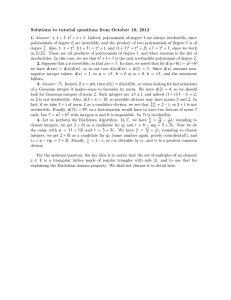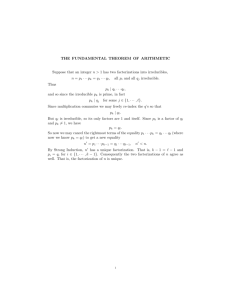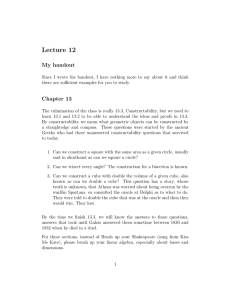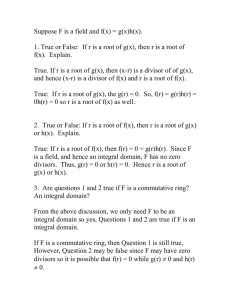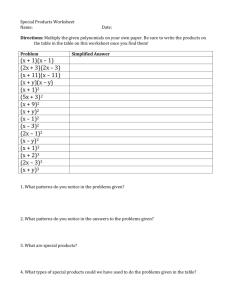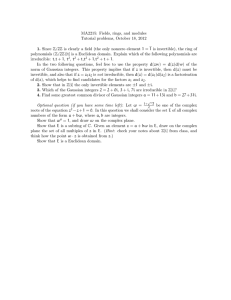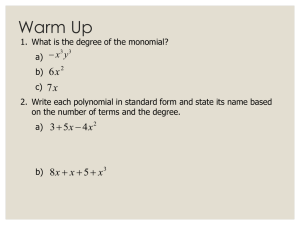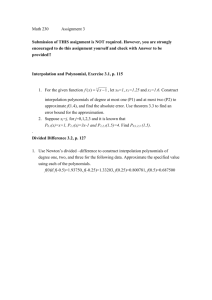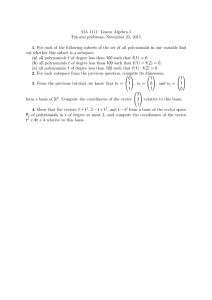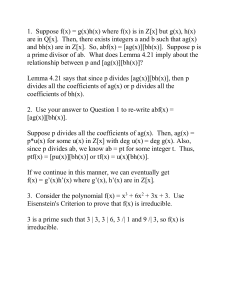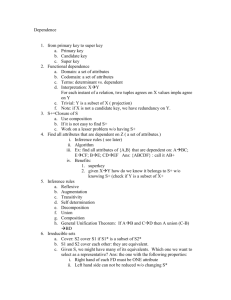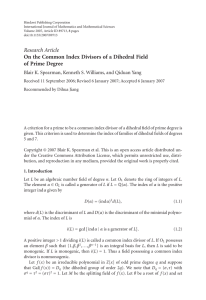MA2215: Fields, rings, and modules → S/I and ˜S 7→ π
advertisement
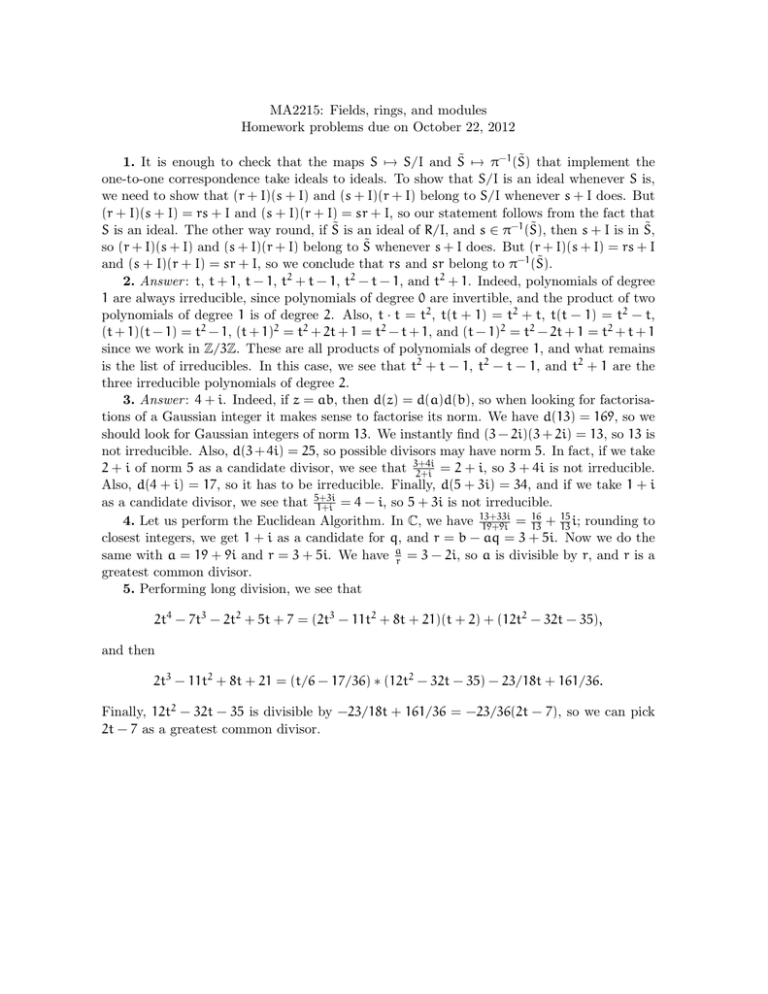
MA2215: Fields, rings, and modules Homework problems due on October 22, 2012 1. It is enough to check that the maps S 7→ S/I and S̃ 7→ π−1 (S̃) that implement the one-to-one correspondence take ideals to ideals. To show that S/I is an ideal whenever S is, we need to show that (r + I)(s + I) and (s + I)(r + I) belong to S/I whenever s + I does. But (r + I)(s + I) = rs + I and (s + I)(r + I) = sr + I, so our statement follows from the fact that S is an ideal. The other way round, if S̃ is an ideal of R/I, and s ∈ π−1 (S̃), then s + I is in S̃, so (r + I)(s + I) and (s + I)(r + I) belong to S̃ whenever s + I does. But (r + I)(s + I) = rs + I and (s + I)(r + I) = sr + I, so we conclude that rs and sr belong to π−1 (S̃). 2. Answer : t, t + 1, t − 1, t2 + t − 1, t2 − t − 1, and t2 + 1. Indeed, polynomials of degree 1 are always irreducible, since polynomials of degree 0 are invertible, and the product of two polynomials of degree 1 is of degree 2. Also, t · t = t2 , t(t + 1) = t2 + t, t(t − 1) = t2 − t, (t + 1)(t − 1) = t2 − 1, (t + 1)2 = t2 + 2t + 1 = t2 − t + 1, and (t − 1)2 = t2 − 2t + 1 = t2 + t + 1 since we work in Z/3Z. These are all products of polynomials of degree 1, and what remains is the list of irreducibles. In this case, we see that t2 + t − 1, t2 − t − 1, and t2 + 1 are the three irreducible polynomials of degree 2. 3. Answer : 4 + i. Indeed, if z = ab, then d(z) = d(a)d(b), so when looking for factorisations of a Gaussian integer it makes sense to factorise its norm. We have d(13) = 169, so we should look for Gaussian integers of norm 13. We instantly find (3 − 2i)(3 + 2i) = 13, so 13 is not irreducible. Also, d(3 + 4i) = 25, so possible divisors may have norm 5. In fact, if we take 2 + i of norm 5 as a candidate divisor, we see that 3+4i 2+i = 2 + i, so 3 + 4i is not irreducible. Also, d(4 + i) = 17, so it has to be irreducible. Finally, d(5 + 3i) = 34, and if we take 1 + i as a candidate divisor, we see that 5+3i 1+i = 4 − i, so 5 + 3i is not irreducible. 16 15 4. Let us perform the Euclidean Algorithm. In C, we have 13+33i 19+9i = 13 + 13 i; rounding to closest integers, we get 1 + i as a candidate for q, and r = b − aq = 3 + 5i. Now we do the same with a = 19 + 9i and r = 3 + 5i. We have ar = 3 − 2i, so a is divisible by r, and r is a greatest common divisor. 5. Performing long division, we see that 2t4 − 7t3 − 2t2 + 5t + 7 = (2t3 − 11t2 + 8t + 21)(t + 2) + (12t2 − 32t − 35), and then 2t3 − 11t2 + 8t + 21 = (t/6 − 17/36) ∗ (12t2 − 32t − 35) − 23/18t + 161/36. Finally, 12t2 − 32t − 35 is divisible by −23/18t + 161/36 = −23/36(2t − 7), so we can pick 2t − 7 as a greatest common divisor.
